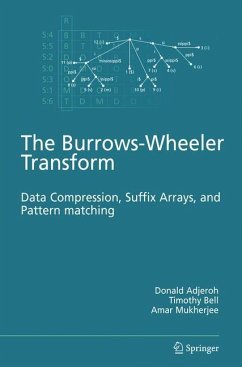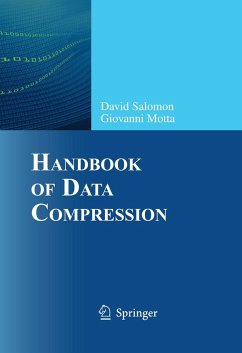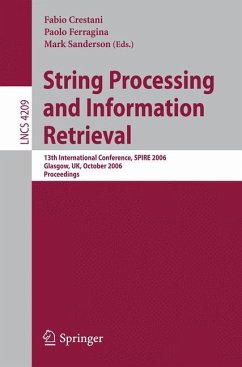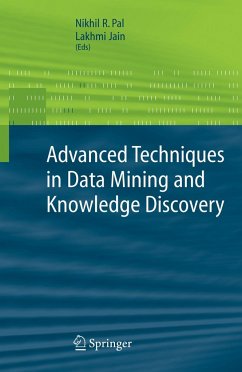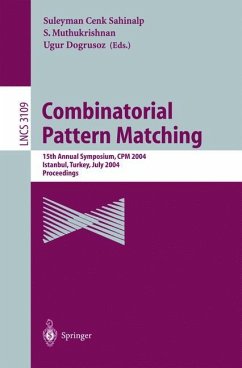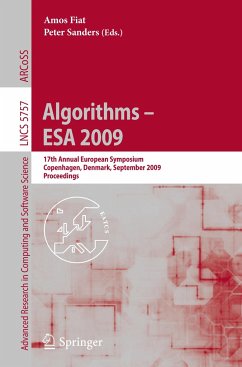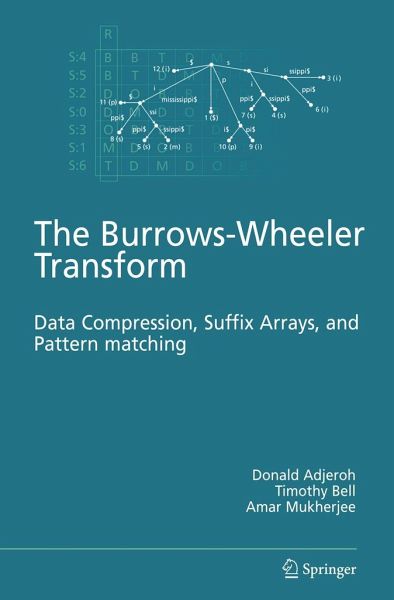
The Burrows-Wheeler Transform:
Data Compression, Suffix Arrays, and Pattern Matching
Herausgeber: Bell, Timothy C.; Mukherjee, Amar; Adjeroh, Donald
Versandkostenfrei!
Versandfertig in 6-10 Tagen
76,99 €
inkl. MwSt.
Weitere Ausgaben:

PAYBACK Punkte
38 °P sammeln!
Here is a reference for seasoned professionals and researchers in the area that also provides a gentle introduction, making it accessible to senior undergraduate students or first-year graduate students embarking upon research in areas related to the BWT.
The Burrows-Wheeler Transform is one of the best lossless compression me- ods available. It is an intriguing - even puzzling - approach to squeezing redundancy out of data, it has an interesting history, and it has applications well beyond its original purpose as a compression method. It is a relatively late addition to the compression canon, and hence our motivation to write this book, looking at the method in detail, bringing together the threads that led to its discovery and development, and speculating on what future ideas might grow out of it. The book is aimed at a wide audience, ranging from those interested in learning a little more than the short descriptions of the BWT given in st- dard texts, through to those whose research is building on what we know about compression and pattern matching. The ?rst few chapters are a careful description suitable for readers with an elementary computer science ba- ground (and these chapters have been used in undergraduate courses), butlater chapters collect a wide range of detailed developments, some of which are built on advanced concepts from a range of computer science topics (for example, some of the advanced material has been used in a graduate c- puter science course in string algorithms). Some of the later explanations require some mathematical sophistication, but most should be accessible to those with a broad background in computer science.





